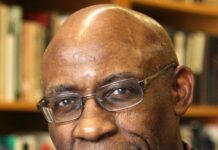 A new study by researchers at the University of Minnesota offers what the authors say is the first to explore racial disparities in exposure to air pollution nationwide.
A new study by researchers at the University of Minnesota offers what the authors say is the first to explore racial disparities in exposure to air pollution nationwide.
Using satellite data and land-use information from the Environmental Protection Agency along with U.S. Census data on the race of the population in various census tracts, researchers determined that African Americans and other minorities on average breathe in 38 percent more noxious nitrogen dioxide than White Americans. In large part, the disparity is the result of African Americans being more likely to live near power plants and roadways where large amounts of vehicle exhaust pollute the air.
The researchers estimate that if Blacks and other minorities breathed air that had similar nitrogen dioxide levels as Whites, it would prevent 7,000 deaths each year.
The study, “National Patterns in Environmental Injustice and Inequality: Outdoor NO2 Air Pollution in the United States,” was published in the April 15 issue of PLOS ONE. It may be downloaded by clicking here.











